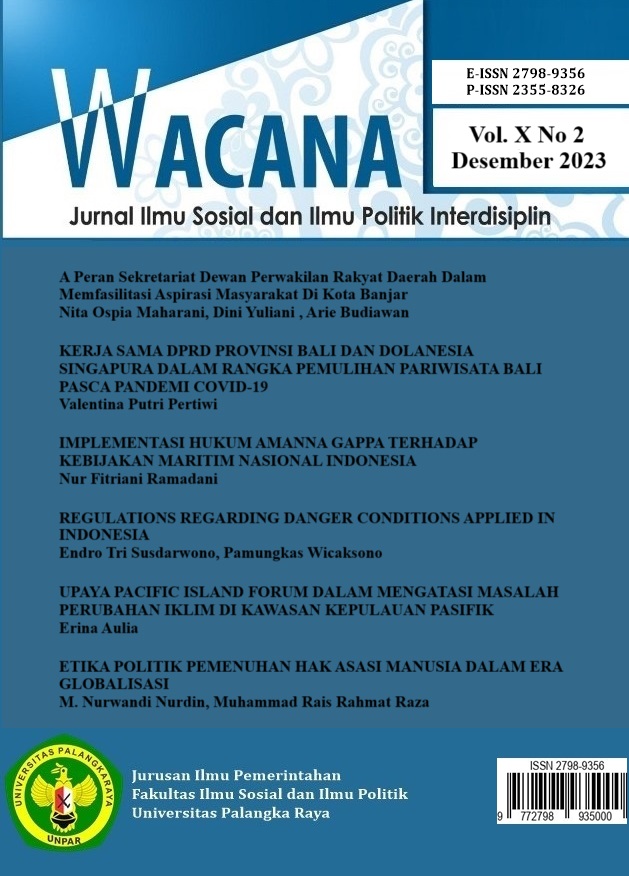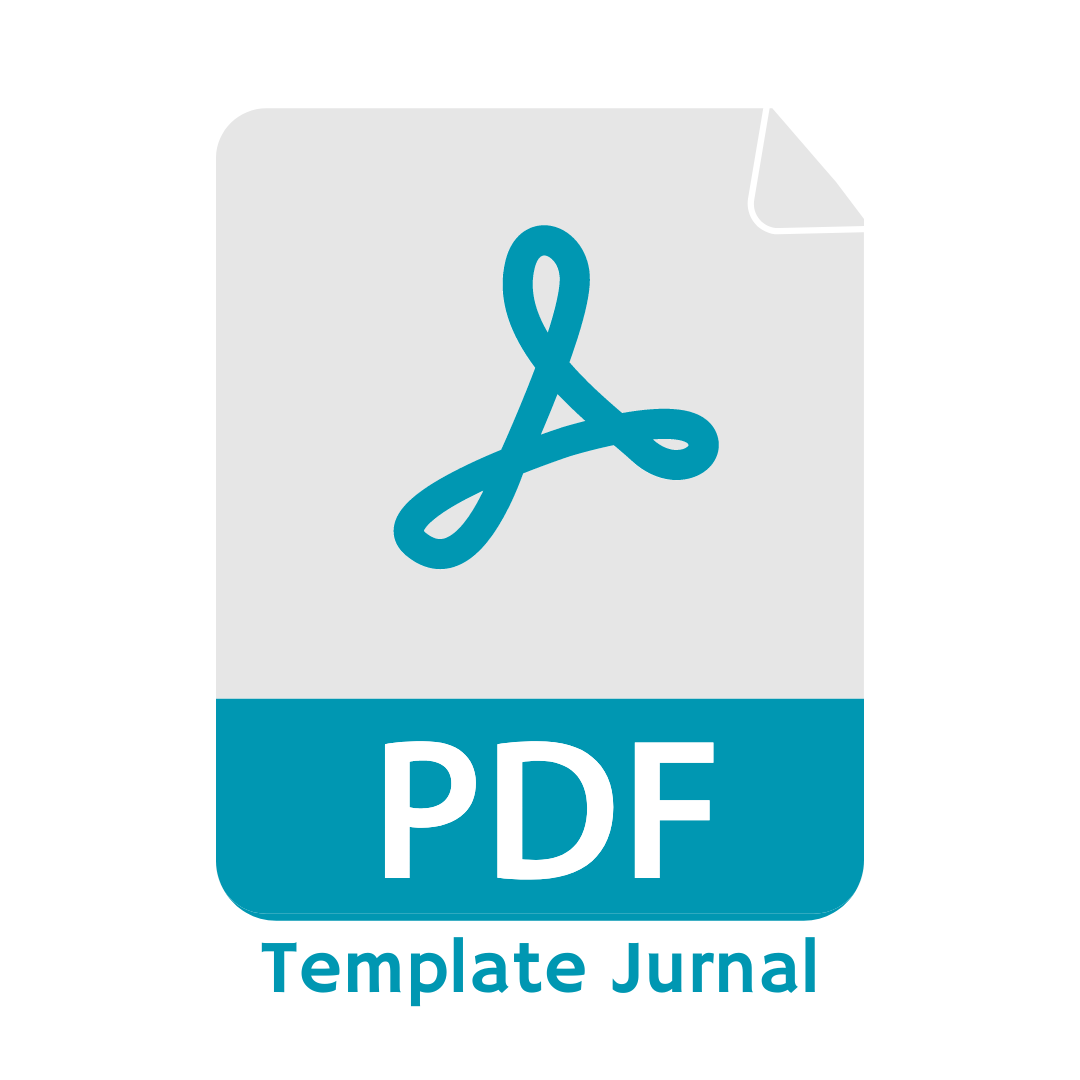IMPLEMENTASI HUKUM AMANNA GAPPA TERHADAP KEBIJAKAN MARITIM NASIONAL INDONESIA
DOI:
https://doi.org/10.37304/wacana.v10i2.11404Keywords:
Amanna Gappa Law, Maritime Policy, world maritime axisAbstract
The Amanna Gappa Law has the same goal as the Indonesian Maritime Policy, namely advancing the archipelago's maritime sector. The steps taken within the maritime policy framework will play an important role in protecting the marine environment, improving the welfare of maritime communities, and encouraging sustainable economic growth in Indonesia's vast maritime region. For this reason, the author is interested in highlighting the implementation of the Amanna Gappa Law in Indonesian maritime policy. The method used by the author in this article is the Literature Review method. Information collection was carried out in October 2023. The literature review method is described as a systematic and evaluative procedure for finding, evaluating, and integrating concepts from previous research that are appropriate to the topic that will be discussed in this article. The Amanna Gappa law is currently no longer used, but this law is proof that there was a system that regulated shipping and trade in ancient times. Nowadays, the system that regulates shipping and trade was initiated through the Indonesian Maritime Policy which is guided by Indonesia's development. Even though the Amanna Gappa Law system is no longer in use, the system that regulates Indonesian trade and shipping continues to develop. The contents of the articles of the Amanna Gappa Law can be seen to be related to Indonesian maritime policy. This connection can be seen from the importance of regulating economic systems, security and trade in maritime affairs.












